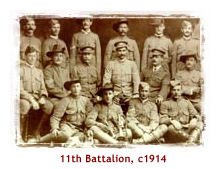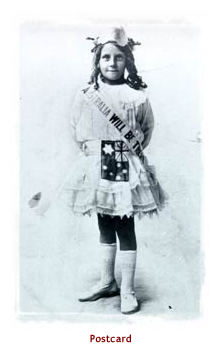 |
World War 1

When Great Britain declared war on Germany in 1914, Australia found itself automatically at war too. Thousands of young Western Australian men volunteered for service in the Australian Imperial Force.
It is important to remember that Australian troops were sent to be part of an Imperial army. Most Australians believed that they were a part of the British Empire and wanted to do all they could to protect it. It was popularly believed that participation in the war would also 'prove' Australia as a new nation.
Soldiers of the Australian Imperial Force were usually recruited, trained and organised along regional lines. Western Australians fought in Western Australian battalions, although by the end of the war this had changed through necessity, due in part to the high rate of casualties.
 The First World War helped to foster a sense of Australian nationalism, even though national feeling was expressed within an Imperial framework. Western Australian troops identified with their fellow Australians, taking pride in their achievements and sharing a sense of common identity distinct from that of British soldiers. Australian troops compared very favourably in physique and stature to the average English soldier, showing initiative and a disrespect for authority which the British High Command often found difficult to accept. The First World War helped to foster a sense of Australian nationalism, even though national feeling was expressed within an Imperial framework. Western Australian troops identified with their fellow Australians, taking pride in their achievements and sharing a sense of common identity distinct from that of British soldiers. Australian troops compared very favourably in physique and stature to the average English soldier, showing initiative and a disrespect for authority which the British High Command often found difficult to accept.
Pride in Australia's military exploits in war, and a chilling indication of the toll it exacted, are evident in George Heppingstone's letter to his mother from Gallipoli, dated 11 September 1915:
"... Poor little Phil Fry was killed. I am sorry as he
was very brave and a good officer and a splendid man. Charlie was with
Philip Turnbull for a time before he died and he promised to look after
his mother for him and he was quite satisfied then but all thoughts were
for his mother. He was a splendid young fellow and was one of our Rhodes
scholars. The grand chaps that I know that have crossed the Great Divide
has [sic] been awful but I am quite certain the Great Creator will give
them their reward for such gallantry. The Australian name is spoken of
in the most glowing terms here when one has actually seen what the Australians
have done and are now doing it is most inspiring. We can certainly claim
to have accomplished the most difficult task that has ever been set to
soldiers and that without the slightest flinching. There have been some
very gallant acts that would have received very high praise in an English
regiment, but they are so common among the Australian Army that they pass
unnoticed." [Battye Library, Acc 3560A.]
|
 |